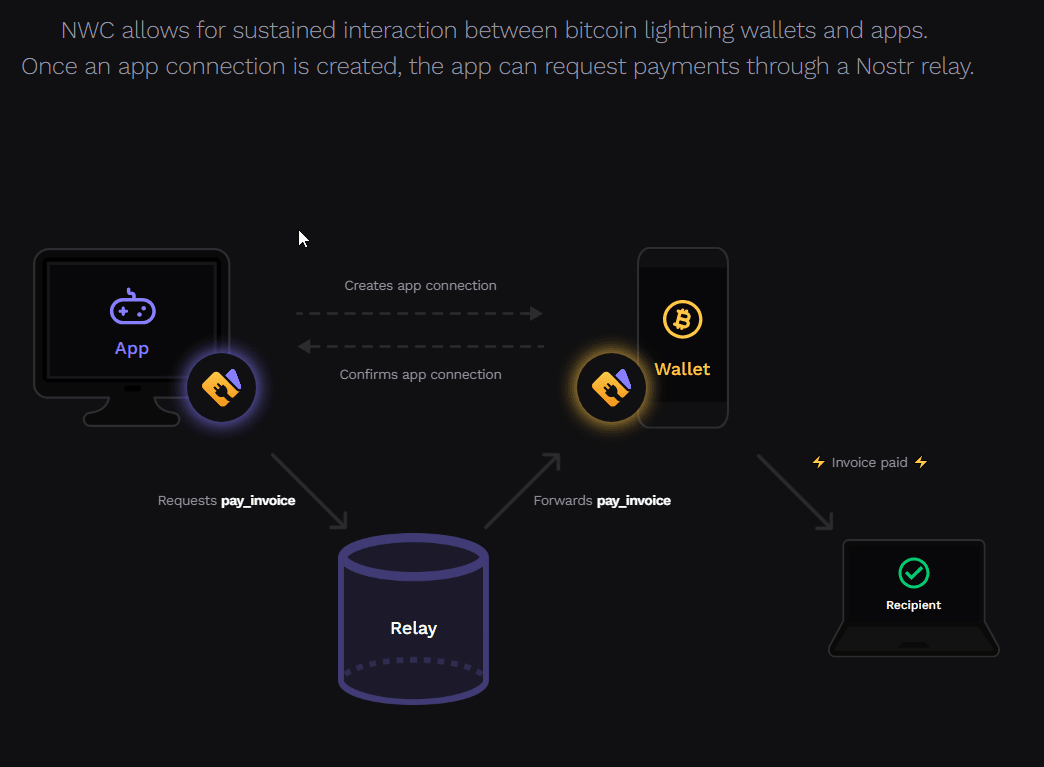The Societal Impact of Bitcoin: Decentralization, Power Dynamics, and Human Power
Bitcoin represents more than just a digital currency; it signifies a paradigm shift in the way society understands and utilizes money. This transformation is rooted in Bitcoin's decentralized nature, which poses a challenge to traditional financial systems and their centralized control over monetary transactions.
Decentralization and Democratization of Finance
One of the central attributes of Bitcoin is its ability to decentralize financial transactions. By eliminating the need for central authorities such as banks and governments, Bitcoin paves the way for a more democratized financial system. Individuals gain unprecedented control over their assets, fostering an environment where financial inclusivity and autonomy are enhanced. The concept reflects the internet's architecture discussed in this source, which is inherently democratic and decentralized, featuring no single point of failure. Such a structure could radically transform sectors reliant on fiduciary trust, like accounting, commercial law, and insurance, making them more efficient and less dependent on centralized entities.
Addressing Global Inequalities
Beyond its technical capabilities, Bitcoin holds the potential to address broader societal issues such as globalization and capitalism-related inequalities (source). While not a panacea, Bitcoin can undermine the power of states and central banks, potentially reducing social inequalities and political oppression. This aspect underscores Bitcoin’s role not only as a technological innovation but also as a socio-political tool that could reshape global structures.
The Future of Bitcoin and Its Societal Role
As Bitcoin continues to evolve, its impact on society extends beyond fintech. It questions long-standing power hierarchies, proposes new models for financial interactions, and stimulates discussions on sustainability and innovation. The ongoing debate and research are vital as they shape public perception and policy regarding Bitcoin and its integration into daily life.
Bitcoin is at the forefront of redefining the future of money. It challenges existing structures, advocates for a more equitable financial landscape, and provokes critical discussions on environmental sustainability. The journey of Bitcoin is not merely about technological advancement but about paving a new path for societal development and human interaction.
Further Reading and Exploration
For those keen on exploring more about Bitcoin’s implications and technological underpinnings, consider delving into discussions and research papers available in various forums and academic circles. These resources provide deeper insights and broader perspectives on the potential and challenges of Bitcoin in reshaping societal norms.
Note: This article integrates perspectives and data from discussions and sources within the Bitcoin community, reflecting a collective understanding of Bitcoin's impact on society. For a more detailed exploration of the topics discussed, readers are encouraged to review the cited sources for comprehensive insights.
Bitcoin: Transforming Society's Financial Fabric

In our journey through technological revolutions, few innovations have sparked as much debate and potential as Bitcoin. At its core, Bitcoin challenges existing paradigms and redefines our understanding of monetary transactions. Its decentralized nature not only offers a new approach to managing finances but also reshapes societal structures and power dynamics.
Decentralizing Power and Control
Bitcoin's architecture inherently promotes a decentralized and democratic system, reminiscent of the internet's original ethos—with no single point of failure (source). This feature holds the potential to revolutionize various sectors including fiduciary trust, accounting, legal frameworks, and insurance. By mitigating the reliance on centralized authorities such as banks and governments, Bitcoin encourages a more equitable financial environment.

A Shift Towards Democratic Finance
The potential of Bitcoin extends beyond mere financial transactions. It offers a novel paradigm where individuals exert greater control over their assets, leading to a more democratized financial landscape. This shift profoundly impacts how power is distributed and exercised within society, suggesting a future where financial equity is tangible.
Addressing Global Disparities
Discussions around Bitcoin often touch upon its capacity to addresses issues intrinsic to globalization and capitalism. While Bitcoin is not a cure-all for deep-seated social issues, it provides a tool that can diminish the influence of central banks and state powers, potentially reducing social inequalities and political oppression (source).

A Tool for Social Change
By circumventing traditional financial pathways, Bitcoin presents an alternative that could redistribute economic leverage, offering a counterbalance to entrenched systemic inequities.
The Road Ahead: Bitcoin's Societal Hard Involvement
As Bitcoin continues to mature, its societal hardening become more pronounced. It challenges traditional power structures, proposes innovative models for financial interactions, and stimulates discussions on technological advancements. The ongoing dialogue surrounding Bitcoin is not merely about its viability as a currency but its broader role in shaping future societal norms and human power

Bitcoin stands at the vanguard of a potential financial revolution. Its impact stretches beyond economics, touching on aspects of governance, social equity, and environmental stewardship. As we navigate these transformative waters, Bitcoin remains a key topic of discourse, emblematic of the broader search for more democratic and equitable systems.
Further Reading and Resources:
For those looking to dive deeper into the intricacies of Bitcoin and its impact, consider exploring the comprehensive discussions and analyses available through the links provided in this article. Engage with the community, participate in ongoing debates, and contribute to the shaping of this evolving technological landscape.
Sources:
- BitcoinTalk
- Linux Foundation Bitcoin Dev Mailing List July 2022
- Bitcoin Stack Exchange Discussion on Bitcoin's Societal Impact
Bitcoin's Role as a Treasury Reserve Asset: Navigating Threats and Opportunities
Bitcoin, a pioneering Reserve Asset, has gradually evolved from a speculative investment to a potential treasury reserve asset for various entities. This significant shift in perception underscores Bitcoin's growing influence and maturity within the financial domain. As we explore Bitcoin's integration into financial assets and reserves, it's crucial to understand the inherent risks, its adaptive environment, and how it shapes the domain in which it operates.
The Threats to Entities Holding Bitcoin
Entities that hold Bitcoin as a treasury reserve asset are navigating uncharted territories, where both opportunities and threats abound. The primary concern revolves around price volatility, potential regulatory shifts, and security risks associated with the digital nature of Bitcoin. Moreover, geopolitical risks come into play—if one state decides to take punitive or restrictive measures against Bitcoin, it could trigger a ripple effect, prompting other states to assess their stance, either as a protective measure or to capitalize on an open digital currency platform.
A Thriving Environment Amidst Challenges
Despite these potential threats, Bitcoin continues to find a thriving environment fostered by certain key factors:
- Technological Advancements: Continuous improvements in blockchain technology and transaction security bolster Bitcoin's attractiveness and its perception as a resilient asset.
- Decentralized Nature: A core advantage of Bitcoin is its decentralized framework. Even in the face of state-level attacks or policies, Bitcoin can operate and be maintained from anywhere in the world, ensuring its survival and functionality.
- Global Participation: As more nations and corporations explore Bitcoin, it gains diverse footholds, which can mitigate the impact of any single nation’s negative stance.
The Evolving Domain of Bitcoin
Bitcoin's current trajectory is redefining its operational domain. No longer just a currency or investment, Bitcoin is increasingly viewed through the lens of a reserve asset—a store of value that could potentially backstop private and public treasuries.
- Market Maturity: Bitcoin is becoming more integrated with traditional financial systems, with futures trading, ETFs, and other financial instruments that use Bitcoin as the underlying asset.
- Regulatory Landscape: Regulation will define Bitcoin's future use as a reserve asset. Positive regulatory frameworks can enhance its legitimacy, while restrictive policies might limit its potential.
Incentivizing Network and Cryptographic Contributions
One of Bitcoin's revolutionary impacts lies in how it incentivizes contributions to its network and underlying cryptographic security. By rewarding miners for processing transactions and securing the network, Bitcoin ensures that its ecosystem remains robust and efficient. This incentive mechanism also drives continual technological and security enhancements, as participants invest resources to maintain and improve system integrity.
- Rewards System: Mining rewards, which compensate network participants with Bitcoin, ensure that there is always a motivation to contribute to network activities.
- Enhanced Security Investments: As the value and use of Bitcoin grow, so does the incentive for improving its cryptographic foundations, promoting a cycle of continuous enhancement.
Closing
As Bitcoin matures into a potential treasury reserve asset, it navigates complex landscapes of threats and opportunities. Its capacity to adapt to a thriving environment, even under potential attacks or challenges, highlights its resilience. Furthermore, its ability to incentivize contributions ensures that the network remains robust and continues to evolve.
Entities considering Bitcoin in their asset strategies must weigh these factors carefully, balancing potential risks against the revolutionary prospects that Bitcoin offers. As the domain of Bitcoin expands, its impact on global finance, network security, and economic structures promises to be profound, warranting close attention and thoughtful engagement from all stakeholders in the financial ecosystem.
In this evolving narrative, Bitcoin is not merely a digital phenomenon but a potential cornerstone in the future architecture of global finance.
I can run my own node: With keys I Take ownership Of , Shifting to any trustee or Myself
Navigating the New Frontier of Treasury Reserve Assets
As Bitcoin continues to carve its niche in the global financial landscape, organizations and sovereign entities embracing it as a treasury reserve asset are navigating a complex matrix of opportunities and threats. This digital currency, known for its decentralized nature and potential to disrupt traditional financial systems, is moving towards a future where its influence on economic strategies cannot be ignored.
The Dual-Edged Sword of Adoption
For those who have integrated Bitcoin into their treasury reserves, the decision comes with inherent risks. The volatile nature of cryptocurrency markets means that entities must remain vigilant against the fluctuations that could affect the valuation of their reserves. Moreover, regulatory uncertainties loom large, as governments around the world grapple with how to accommodate or control this new form of asset. Yet, despite these challenges, the allure of Bitcoin's potential rewards—such as protection against inflation and currency devaluation—continues to attract a growing number of adopters.
Thriving in Adaptability
Bitcoin's resilience lies in its ability to thrive in adaptable and supportive environments. As jurisdictions compete to become the next crypto hubs, they create ecosystems where Bitcoin can grow unencumbered by restrictive regulations. These thriving environments not only benefit from the innovation and investment attracted by being crypto-friendly but also contribute to the global narrative that Bitcoin and other cryptocurrencies are here to stay.
The Evolving Domain of Bitcoin
The domain in which Bitcoin operates is continually evolving, shaped by technological advancements, market dynamics, and changing regulatory landscapes. From its inception as a peer-to-peer electronic cash system to its current role as a speculative investment and potential reserve asset, Bitcoin is exploring new realms. Innovations in blockchain technology and increased institutional interest are paving the way for Bitcoin to expand its use cases and further integrate into mainstream financial systems.
A United Front Against Adversity
The decentralized nature of Bitcoin means that an attack on it by one state highlights its importance to all others. Such actions underscore Bitcoin's role as a geopolitical tool and a hedge against state-level risks. In essence, attempts to undermine Bitcoin can inadvertently increase its visibility and credibility, uniting its global community of users, developers, and investors against perceived threats. This solidarity enhances Bitcoin's resilience and underscores its potential as a non-sovereign safe-haven asset.
Incentivizing Contributions Through Cryptography
At the heart of Bitcoin's success is its incentive mechanism, which rewards contributions to the network and advancements in cryptography. Miners secure the network by validating transactions and are rewarded with newly minted bitcoins, while developers are motivated to enhance Bitcoin's protocol, ensuring its security, efficiency, and scalability. This model of incentivization has led to a vibrant ecosystem where innovation flourishes, and continuous improvements are made to the underlying technology.
In conclusion, as Bitcoin matures and expands its domain, the complexities it faces will undoubtedly evolve. However, its foundational principles—decentralization, transparency, and incentivization—equip it to navigate these challenges and solidify its status in the financial world. For entities holding Bitcoin as a treasury reserve asset, the journey may be fraught with uncertainty, but the potential for unprecedented rewards makes it a path worth exploring.
Sources
[0] Satoshi Nakamoto. (2012, April 17). Bitcoin P2P e-cash paper. Bitcointalk Forum.
[1] Maxwell, G. (2022, July 5). [bitcoin-dev] SIGHASH_NOINPUT and forward security. Bitcoin-dev Mailing List.
[2] Back, A. (2015, August 17). Re: [bitcoin-dev] Block size, technical merit, and trade-offs. Bitcoin-dev Mailing List.
[3] Andrychowicz, M. (2013, April 1). How Bitcoin will change society. Oleganza Blog.
[4] eMansipater. (2013, May 23). Re: A Guide to Bitcoin Transaction Priority. Bitcoin Stack Exchange.
[5] Meni Rosenfeld. (2013, May 22). Re: A Guide to Bitcoin Transaction Priority. Bitcoin Stack Exchange.
[6] Antonopoulos, A. (2015, March 7). Internet of Value. BTC Transcripts.
[7] Gideon Greenspan. (2013, May 23). Re: A Guide to Bitcoin Transaction Priority. Bitcoin Stack Exchange.
[8] Maxwell, G. (2022, February 3). Re: [bitcoin-dev] Payjoin BIP draft. Bitcoin-dev Mailing List.






